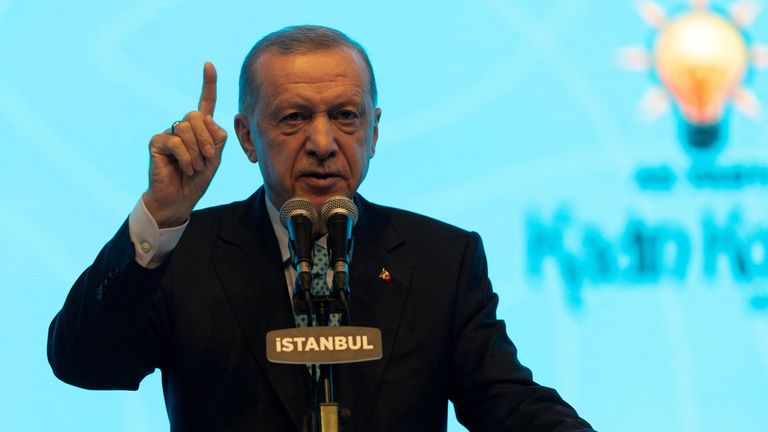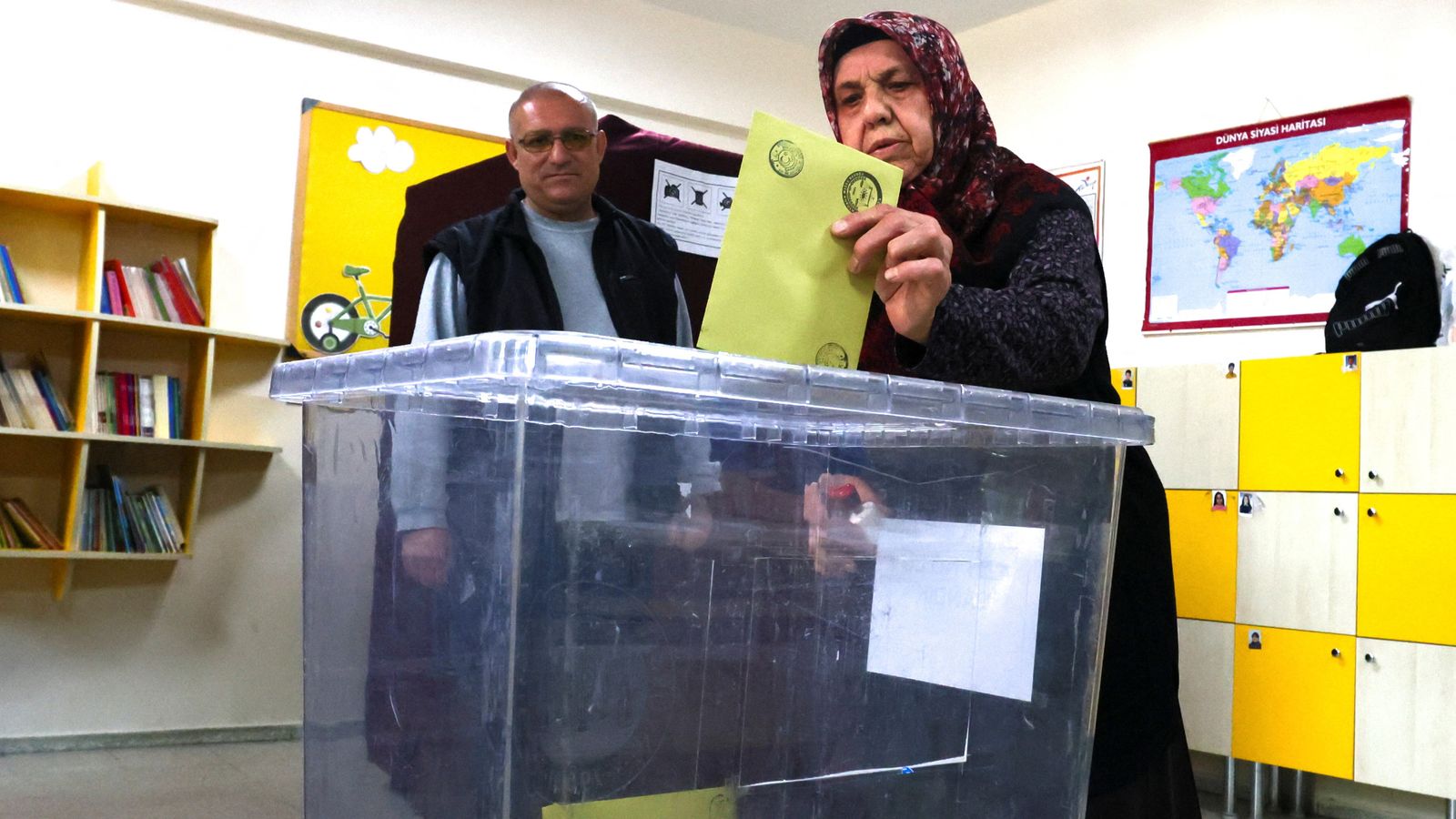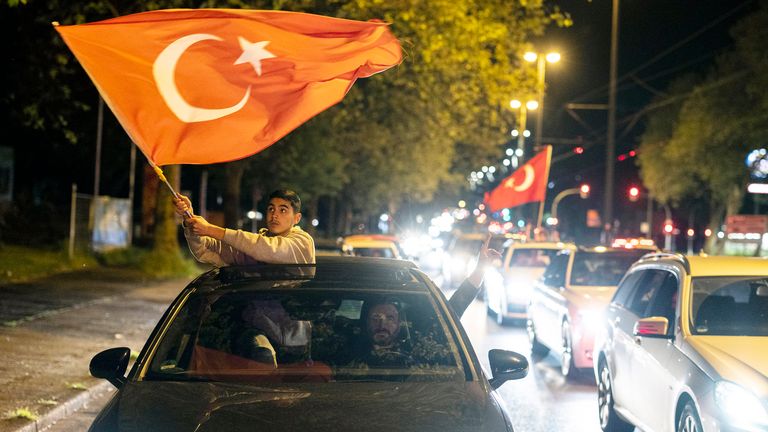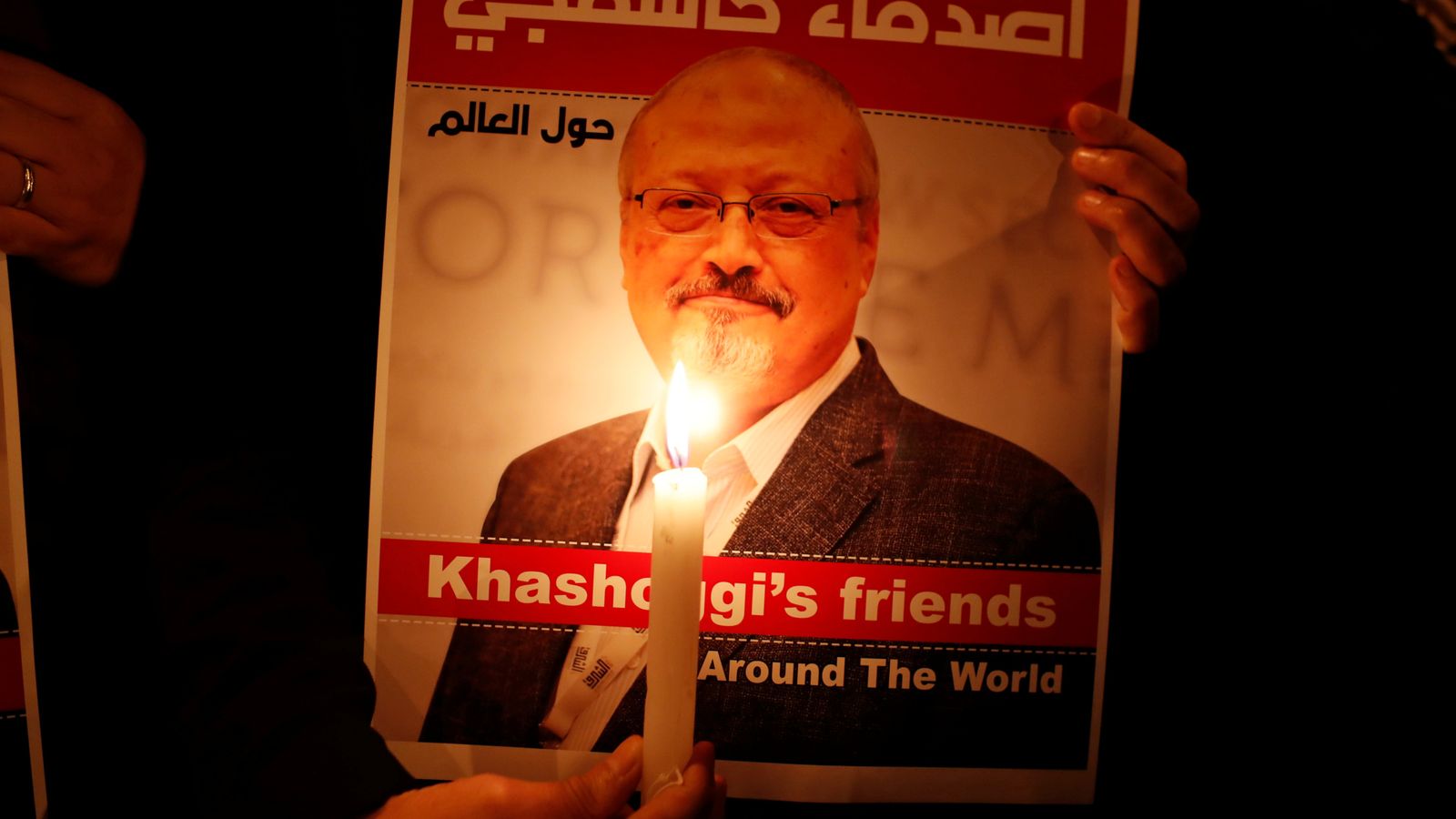
Turkey goes to the polls today for a presidential run-off that could see Recep Tayyip Erdogan extend his rule into a third decade.
Neither Mr Erdogan, 69, nor his rival Kemal Kilicdaroglu reached the required 50% of the vote in the first round on 14 May.
The race could have profound consequences for Turkey, and the wider world.
Despite not reaching the required winning margin, the incumbent’s unexpectedly strong showing in the first round amid a deep cost of living crisis buoyed Mr Erdogan.
A win in parliamentary elections for a coalition of his conservative Islamist-rooted AK Party (AKP), the nationalist MHP and others, also offered Mr Erdogan a boost. He says a vote for him is a vote for “stability”.
But when earthquakes struck the country earlier this year, the incumbent president faced widespread criticism for a sluggish response.
His 74-year-old opponent, Mr Kilicdaroglu, is the candidate of a six-party opposition alliance, and leads the Republican People’s Party (CHP) created by Mustafa Kemal Ataturk, modern Turkey’s founder.
The election will decide who leads Turkey, a country of 85 million people, and how it is governed.
Its currency has plunged to one-tenth of its value against the dollar in a decade.
And the country’s foreign policy could also be shaped by the election. In recent years the NATO member state has irked the West by cultivating ties with Russia and Gulf states.
It’s estimated around eight million eligible voters did not have their say in the first round of the election. Both candidates will hope to win them over in the run-off.
Turkey hosts the most refugees of any nation on Earth, with some five million migrants, more than three million of whom are Syrian, according to Interior Ministry data.
Read more:
The West will be disappointed if Erdogan succeeds
Turkey’s vote may be the most important in the world this year
Third-place presidential candidate, the hard-line nationalist Sinan Ogan, endorsed Mr Erdogan based on a principle of “non-stop struggle (against) terrorism”, referring to pro-Kurdish groups. He achieved 5.17% of the vote in the first round.
Another nationalist, Umit Ozdag, leader of the anti-immigrant Victory Party (ZP), announced a deal declaring ZP’s support for Mr Kilicdaroglu, after he said he would repatriate immigrants. The ZP won 2.2% of the votes in this month’s parliamentary election.
Turkey’s Kurds, who amount to about a fifth of the population, could also be crucial in the run-off.
The pro-Kurdish Peoples’ Democratic Party (HDP) party endorsed Mr Kilicdaroglu in the first round.
The results of the run-off are expected this evening.














